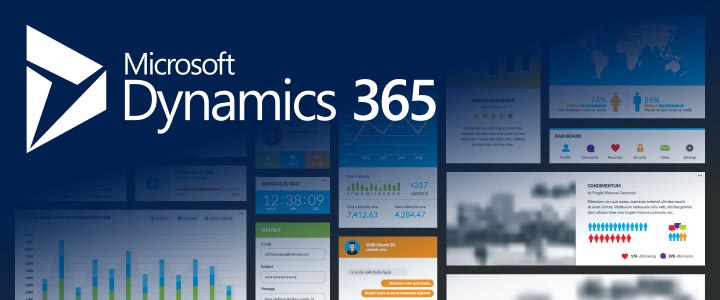- August 29, 2025
- Posted by: Vineeta Birthlal
- Category: Microsoft Dynamics 365

In today’s competitive industrial landscape, process manufacturers face complex challenges that extend far beyond simple accounting or supply chain management. Industries such as chemicals, food and beverage, pharmaceuticals, and plastics must navigate stringent regulatory compliance, fluctuating raw material costs, sustainability pressures, and evolving customer demands. While Microsoft Dynamics 365 is a powerful enterprise resource planning (ERP) solution, process manufacturers often find that it does not fully address the unique complexities of their operations.
To truly thrive, these businesses require more than a traditional ERP—they need industry-specific solutions tailored to the dynamic realities of process manufacturing.
The Limitations of Microsoft Dynamics 365 for Process Manufacturers
Microsoft Dynamics 365 is a robust and flexible ERP system that provides strong financial, supply chain, and CRM functionalities. However, process manufacturers often discover gaps in critical areas:
1. Formulation and Recipe Management
Unlike discrete manufacturing, process manufacturers rely heavily on recipes and formulations rather than bills of materials. Dynamics 365 is designed primarily for discrete industries, making it challenging to manage variable yields, scaling of recipes, or substitutions of raw materials while ensuring consistent quality.
2. Regulatory Compliance
Industries like food, pharmaceuticals, and chemicals must adhere to strict compliance standards such as FDA, GMP, or REACH. Dynamics 365 provides some compliance capabilities, but it lacks built-in, industry-specific compliance frameworks. This often forces process manufacturers to rely on manual processes or third-party tools, increasing the risk of errors.
3. Batch and Lot Tracking
Process industries require end-to-end visibility into raw materials, intermediate products, and finished goods. They need to track by batch, lot, or even sub-lot. While Dynamics 365 offers inventory tracking, it does not always meet the advanced traceability and recall requirements process manufacturers demand.
4. Quality Management
Quality is not an add-on for process industries—it is at the heart of operations. Ensuring that every batch meets specifications requires integrated quality control, sampling, and testing within the production cycle. Dynamics 365 provides basic quality management, but process manufacturers often need a more robust solution that links directly with production, compliance, and reporting.
5. Sustainability and Waste Reduction
With sustainability goals becoming increasingly important, process manufacturers must optimize raw material usage, minimize waste, and ensure energy efficiency. These specialized capabilities are not native to Dynamics 365 without significant customization or external integrations.
Why Industry-Specific Solutions Are Essential
Process manufacturing is not a “one-size-fits-all” industry. Businesses require ERP extensions or vertical solutions designed specifically for their needs. Industry-specific solutions provide:
- Advanced Recipe Management – Tools for scaling, substitutions, and by-product management.
- Integrated Compliance Features – Preconfigured frameworks for regulatory standards and automated audit trails.
- Enhanced Batch Control – Full traceability, recalls, and shelf-life management.
- End-to-End Quality Assurance – In-line testing, real-time quality monitoring, and integrated lab systems.
- Sustainability Insights – Tools for waste tracking, energy usage monitoring, and carbon footprint reduction.
When combined with the flexibility and scalability of Microsoft Dynamics 365, these solutions enable process manufacturers to operate more efficiently, reduce risks, and improve profitability.
The Competitive Advantage of Going Beyond Dynamics 365
Manufacturers that augment Dynamics 365 with industry-specific capabilities unlock significant competitive advantages:
- Reduced Operational Risk – Automated compliance and advanced traceability minimize the chance of costly recalls or penalties.
- Improved Efficiency – Optimized recipes, reduced waste, and streamlined processes drive leaner operations.
- Greater Customer Confidence – Consistent product quality and transparent compliance reporting enhance brand trust.
- Future-Readiness – Businesses can adapt quickly to new regulatory requirements, market changes, or sustainability targets.
Ultimately, the combination of Dynamics 365 with process manufacturing solutions transforms ERP from a general business tool into a strategic enabler of growth.
Partnering with the Right Experts
While Microsoft Dynamics 365 is a strong foundation, process manufacturers need an experienced partner who understands their industry challenges and can deliver tailored solutions that go beyond the standard ERP.
At Al-Futtaim Technologies, we specialize in helping process manufacturers unlock the full potential of Microsoft Dynamics 365 by integrating industry-specific extensions, best practices, and compliance-ready features. With deep expertise in both ERP and manufacturing, we ensure your digital transformation journey is not just about technology, but about achieving measurable business outcomes.
Ready to Take Your Process Manufacturing to the Next Level?
Don’t let the limitations of a one-size-fits-all ERP hold your business back. With the right partner and the right solutions, you can transform Dynamics 365 into a system that meets every unique demand of your process manufacturing operations.
Contact Al-Futtaim Technologies today to discover how we can help you maximize your investment in Microsoft Dynamics 365 and drive sustainable growth in your manufacturing business.



